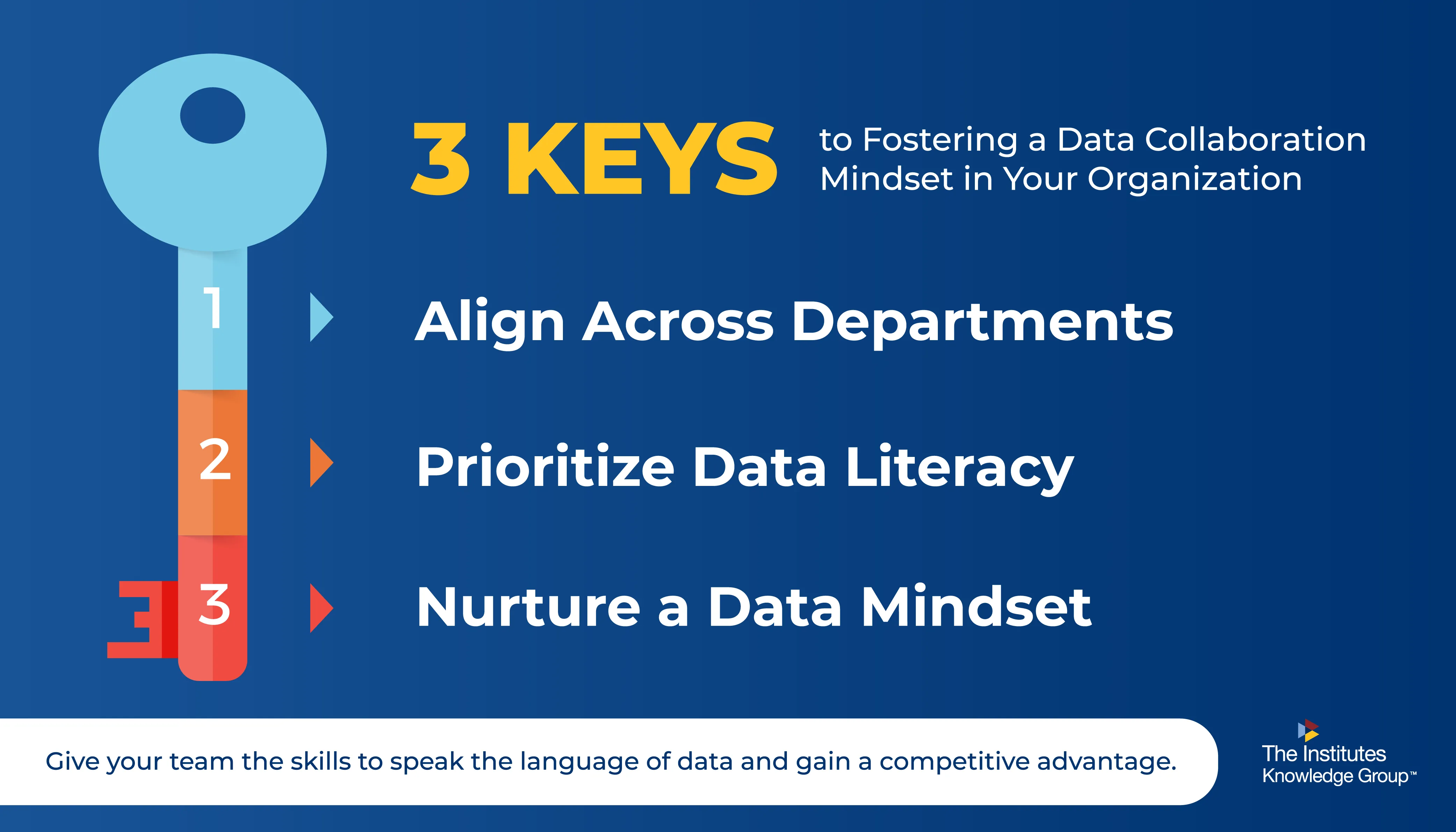Data Analytics & Predictive Modeling
How to Foster a Data Collaboration Mindset in Risk Management and Insurance Organizations
Cutting-edge organizations are harnessing the power of big data in ways that are transforming the RMI landscape across all fronts. Traditional functions like claims, underwriting, and customer service are already undergoing big changes, and the most forward-thinking organizations are applying data science principles to improve efficiency in everything from onboarding to employee meetings.
While these changes offer immense potential, they also introduce operational and cultural challenges. Breaking down silos, shifting habits, and securing buy-in are critical to building a data-savvy culture. This work begins by bridging the gap between data science and other functions and upskilling employees across your organization to speak the language of data.

Align Across Departments to Drive Lasting Culture Change
Successful data collaboration thrives on diverse perspectives and skill sets. When your organization is looking to improve how data is shared and leveraged, it can be a helpful first step to assemble a data transformation team. This team should include cross-functional members such as:
Data Scientists
Involving data analytics experts is crucial, as they manage data from various sources and provide it to other areas of the organization. You may need to include data architects, data wranglers, statisticians, business analysts, and data visualization specialists. Ensure your data reps cover areas like business intelligence, analysis, and modeling, as well as efficient data storage and potential privacy issues.
Actuaries
Including actuaries on your data transformation team is essential, as they help redefine how your organization analyzes and addresses risk. Leveraging their knowledge of insurance data, actuaries work with data scientists to update models and assessment tools.
Department Leaders
Involve team members from various departments to offer input on where data has the most potential to increase efficiency and service. Claims, underwriting, customer service, and marketing teams should all contribute, and it’s important they have a fundamental understanding of data analytics so they can ask the right questions and elicit insights from the data science team.
Information Technology
IT resources are vital for developing, implementing, and maintaining the new systems and processes you have in place to make data collaboration more efficient.
Operations
Data-driven changes require significant operational changes. Including someone with business operations expertise helps ensure smooth transitions and minimizes business interruptions.
Once your internal team begins connecting data from various sources and vetting insights, you may consider sharing with the appropriate external teams such as agents and brokers.
Foster a Data Collaboration Mindset
Cross-departmental teams excel when collaboration efforts are prioritized. To help ensure this, set a clear hierarchy and expectations from the outset. Some team members should focus on asking the right questions and identifying the right problems, while others develop solutions.
It’s critical that non-data scientists have a basic understanding of data analytics so they can ask the right questions and collaborate efficiently with data experts in real time. Success is more likely when everyone across the organization sees data scientists as partners.
Secure Buy-In
Building support for new processes and procedures surrounding data collaboration is essential.
Data scientists and other team members should meet with frontline employees to understand problems, trends, and areas where data analytics and predictive modeling can make a difference. Engaging with frontline employees and demonstrating how big data can help them do their jobs will significantly improve buy-in for new data-driven initiatives.
Make Your Data-Driven Culture a Competitive Advantage
Effective communication between data and frontline employees is just the beginning. Data pervades every aspect of business operations, so organizations and individuals who challenge traditional processes and learn to effectively leverage data will gain a huge competitive advantage.
Data literacy is increasingly important for all employees, with research showing it’s set to be the most in-demand skill by 2030. This starts with building a foundation of knowledge around insurance data science, data management, and data sharing. Building a data-driven mindset involves:
- Encouraging data literacy among all employees. Employees don’t need a degree in data science, but they should understand basic data concepts and their application in the RMI world.
- Developing an organization-wide data mentality. With a grasp of big data basics, employees can start thinking about problems and solutions in terms of data. When new issues or opportunities arise, their first thought should be, “What information do we have at our disposal?”
- Making collaboration a cultural priority. Once employees think like data scientists, they can serve as ambassadors between data experts and frontline employees. Encourage knowledge sharing at every stage of daily operations.
Interested in Learning More?
The Institutes Designations’ new Associate in Insurance Data Analytics® (AIDA™) enables your employees to speak the language of data. AIDA gives employees the skills and confidence to use data effectively, streamline data conversations across the organization, and foster innovative decision-making in today's competitive landscape.
